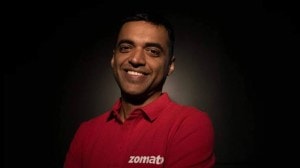Ink row mars Afghan polls
As a record number of Afghans kept their tryst with democracy today, the indelible ink marker pens gifted by India were at the centre of a ...

As a record number of Afghans kept their tryst with democracy today, the indelible ink marker pens gifted by India were at the centre of a raging dispute over the validity of the direct ballot to elect a president. The controversy erupted shortly after voting began when it was discovered that voters could easily wash off the ink mark being put by poorly-trained election officials on their left thumbs.
Several opposition candidates led by former education minister Yunus Qanooni, the main challenger of interim president Hamid Karzai, refused to vote and announced they were boycotting the polls.
But after an emergency meeting, the multinational, UN-backed Joint Electoral Management Body JEMB refused to stop the voting despite the boycott.
8216;8216;Given the complexities of this electoral process, there have inevitably been some technical problems,8217;8217; said Ray Kennedy, vice-chairman, JEMB. 8216;8216;Nevertheless, the JEMB is encouraged that the voters of Afghanistan have turned out in large numbers and the process overall has been safe and orderly.8217;8217; But he refused to specify any time-frame for assessing the conduct of the polls.
Karzai, who is widely expected to win the election, maintained the vote was legitimate. There were 18 candidates on the ballot, including Karzai. Two withdrew at the last minute in favour of Karzai. Of the remaining, 13 were united in rejecting today8217;s elections.
One candidate, former mining minister Mir Mahfooz Nedai, told this correspondent he would decide tomorrow. The lone woman candidate, Masooda Jalal, had also not made up her mind.
The JEMB clarified that the problem was not caused by the indelible ink marker pens supplied by Mysore Paints and Varnish Ltd. Rather, ordinary marker pens meant for marking the ballot paper were being used by inexperienced polling officials to mark voters8217; thumbs. At one polling station, a voter put his thumb in his mouth and sucked the ink off in front of a polling official even before casting his vote.
Unlike the other opposition candidates, Nedai said he thought the mix-up was not deliberate, but a genuine mistake. 8216;8216;I voted early morning, and saw that the pen used by officials to mark my thumb was not Indian-made,8217;8217; he said.
However, some officials complained that even the Indian-made pens were proving ineffective, with the ink easily washing off. At a polling station in a mosque near Kabul airport, this correspondent found that white plastic bottles filled with ink sachets were being used instead of the pens. Voters were being made to dip their thumbs into the bottle. However, a tour of polling stations in Kabul did not reveal any organised bogus voting. Reports from the provinces also indicated that polling was by and large peaceful.
- 01
- 02
- 03
- 04
- 05






























